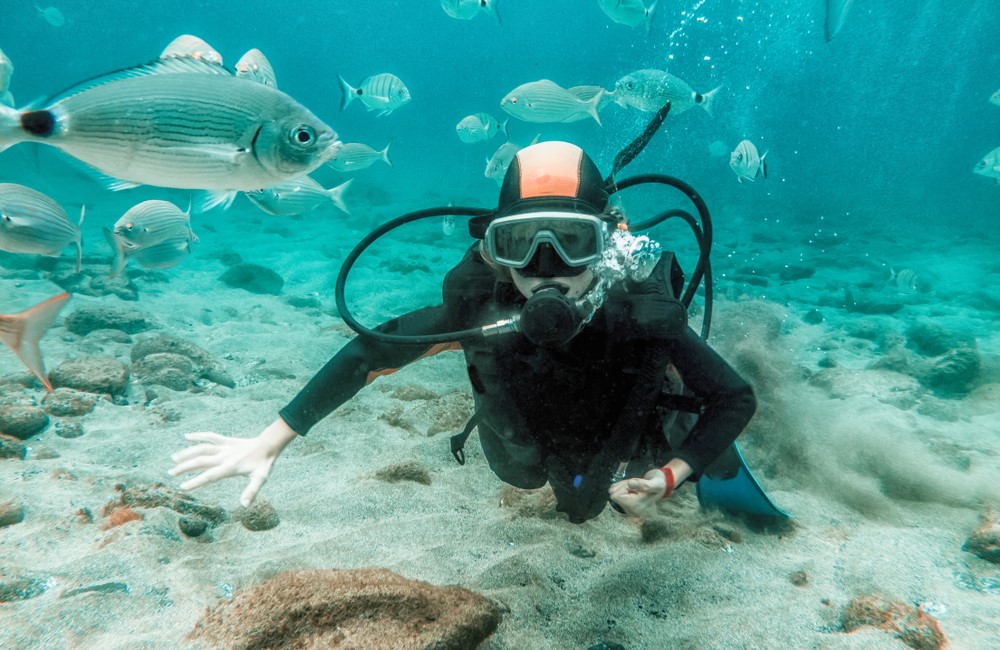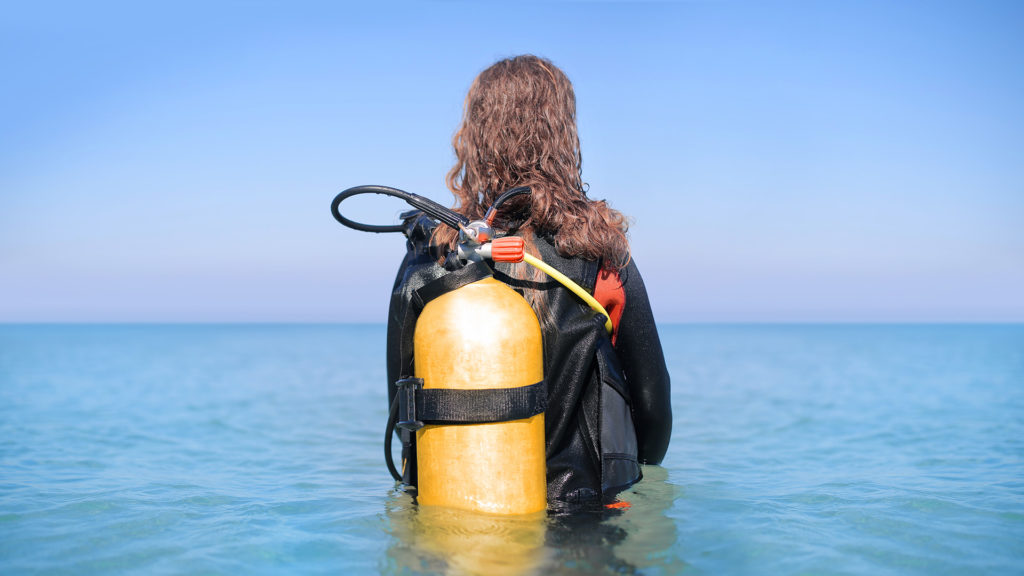Diving is an incredible experience that allows us to explore the vast and mysterious underwater world. However, for some, diving can be marred by the onset of sea sickness, also known as motion sickness.
Sea sickness is a common problem among divers, and it can be caused by a number of different factors, such as the movement of the boat, the change in pressure, and the underwater environment. It can also be caused by other factors such as anxiety, stress, and other medical conditions.
In this article, we will discuss six ways to avoid getting sea sick while diving, so that you can fully enjoy your dive without any nausea or discomfort.
Stay Hydrated
One of the most important things you can do to avoid sea sickness is to stay hydrated. Dehydration can make sea sickness worse, so it's important to drink plenty of water before and during your dive. Avoid alcohol and caffeine, as they can dehydrate you.
Instead, drink water or sports drinks that contain electrolytes to keep your body hydrated and your mind clear. It's also important to note that being dehydrated can also make you more susceptible to ear and sinus problems, which can also make sea sickness worse.
Eat a Light Meal
It's also important to avoid foods that are high in fat or sugar, as they can cause stomach upset and make sea sickness worse. It's also a good idea to avoid overeating, as it can make you feel bloated and uncomfortable while diving.
Take Motion Sickness Medication
Over-the-counter motion sickness medication, such as Dramamine, can help prevent sea sickness. Be sure to follow the instructions and take the medication as directed.
It's a good idea to test the medication before your dive, as some people may experience drowsiness or other side effects.
It's also important to note that some medications can interact with other medications or supplements, so it's always a good idea to consult with your doctor before taking any medication.
Descend Slowly
Rapidly descending can cause disorientation and increase the chances of getting sea sick. Take your time and descend slowly, giving your body time to adjust to the change in pressure.
This can help prevent sea sickness and make the dive more enjoyable.
You should also make sure to equalize your ears as you descend, this will help to prevent barotrauma and make the dive more comfortable.
Look at the Horizon
When you're on the boat, keep your eyes on the horizon. This can help your body adjust to the movement of the boat and prevent sea sickness.
The horizon provides a stable reference point that can help you maintain your balance and reduce the likelihood of getting sea sick. This can also be helpful while diving, as looking at the horizon can help you stay oriented and reduce disorientation.
Get Enough Rest
Being tired can make sea sickness worse, so be sure to get enough rest before your dive. This will help you feel more alert and less likely to get sea sick. Make sure to get a good night's sleep the night before your dive and try to relax and de-stress as much as possible.
It's also important to prepare yourself mentally, by getting familiar with the dive site and the dive plan, this can help to reduce anxiety and prevent sea sickness.
Additionally, you can also try other methods such as acupressure bands, ginger supplements, and aromatherapy to help prevent sea sickness.
However, it's important to remember that every person can react differently, and what works for one person may not work for another. So, it's important to listen to your body and take the necessary precautions to avoid sea sickness.
Another important factor to consider is your overall health, if you have any underlying medical conditions that may make you more susceptible to sea sickness, it's important to inform your dive instructor and make sure that you dive with a buddy who is aware of your condition.
In case you do start feeling nauseous while diving, it's important to come up to the surface slowly and inform the dive master. It's also important to not push yourself, if you feel sick, it's best to end the dive and come back another day.
In summary, sea sickness can be a major problem for divers, but with the right preparation and the right mindset, you can avoid sea sickness and fully enjoy your dive. Remember to always listen to your body, take the necessary precautions and dive safely. Happy diving!






